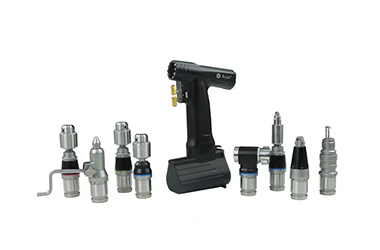Bone Drill Saw is an indispensable medical tool in orthopedic surgery, used for cutting, drilling and trimming bone tissue. Its precision and reliability are directly related to the success rate of surgery and the speed of patient recovery. Driven by modern medical technology, the design and function of bone drill saws are continuously optimized, providing orthopedic surgeons with a more efficient and safer operating experience.
Bone drill saws are usually composed of drill bits, saw blades, drive systems and housings. According to different functions and usage scenarios, it can be divided into the following categories:
1. Electric bone drill saws
Driven by motors, it has the characteristics of high speed and high efficiency, and is suitable for long-term and complex orthopedic surgeries.
2. Pneumatic bone drill saws
Driven by airflow, it is light in weight and has low vibration, and is often used in the sterile environment of the operating room.
3. Manual bone drill saws
It does not rely on power or air sources, and is suitable for operations in limited resources or emergency situations, but it is less efficient.
Bone drill saws are widely used in a variety of orthopedic surgeries, such as fracture fixation, joint replacement, cranial repair, and dental surgery. Through the precise operation of the bone drill saw, doctors can complete the cutting or drilling of bones in order to install internal fixation (such as steel plates, screws) or adjust the bone morphology.
As an important tool for orthopedic surgery, the performance and reliability of the bone drill saw play a vital role in the success of the operation. With the continuous advancement of medical technology, the design and function of the bone drill saw will become more intelligent and humanized, bringing more possibilities to orthopedic surgery and providing better treatment effects for patients.

